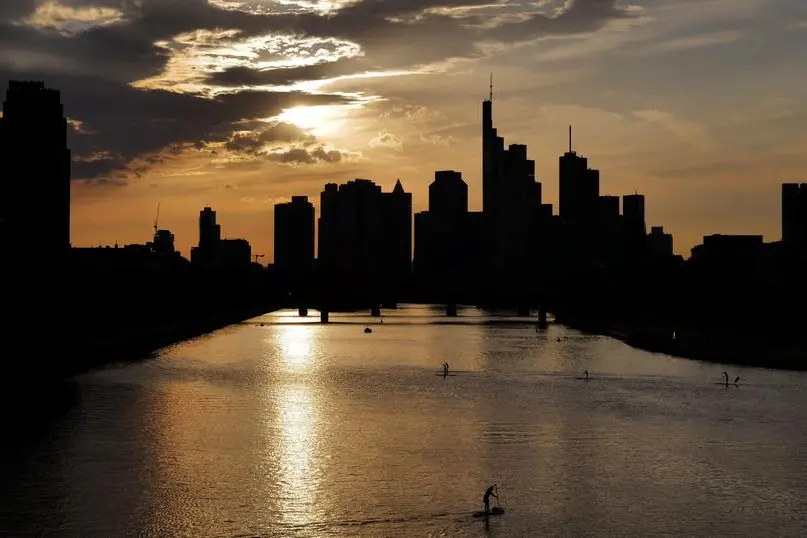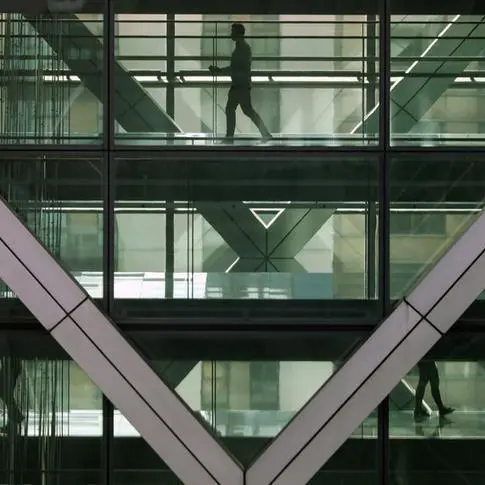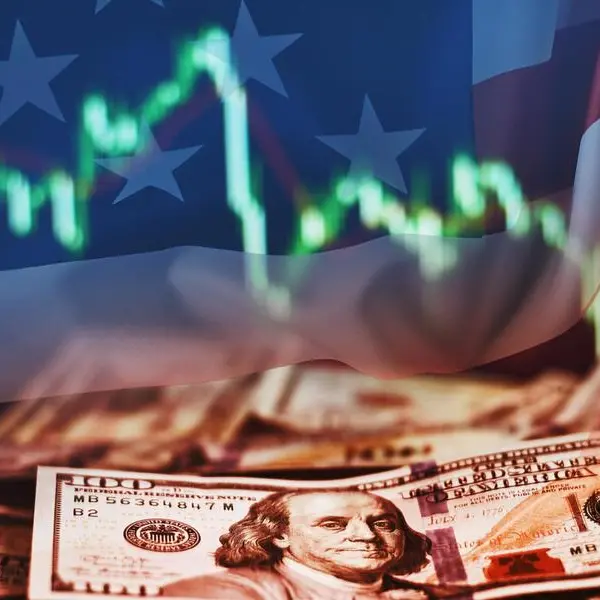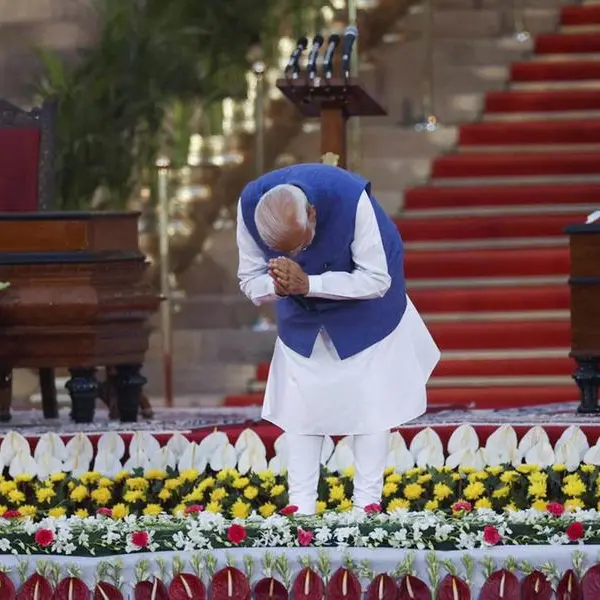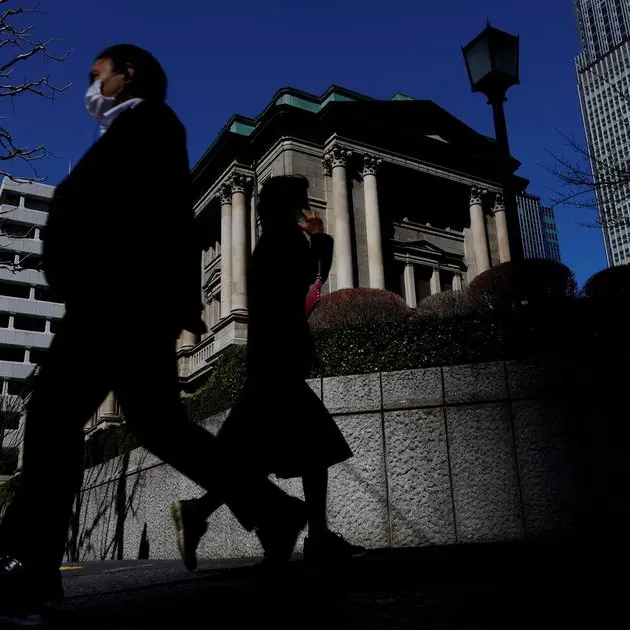PHOTO
BERLIN - Germany's first three-way coalition in decades was forged in crisis last year when unity was paramount. Now as it takes on major structural challenges, deep differences between the parties resurface, delaying critical decisions both at home and on the European stage.
Russia's invasion of Ukraine and the resulting energy crisis forced Chancellor Olaf Scholz's Social Democrats (SPD), the Greens and pro-business Free Democrats (FDP) to cross traditional red lines last year and agree hard compromises on nuclear energy, coal and defense.
Now though, as the urgency to act united subsides, they are locking horns over their signature policy issues in what they see as "pay back time" as one high-ranking government official put it.
The Greens in particular, but also the SPD, want to invest more in the transition to a low-carbon economy. The FDP on other hand, seeks a return to solid public finances after signing off on hundreds of billions of euros of exceptional expenditure during the pandemic and energy crisis.
Last week, those divisions prompted FDP leader and Finance Minister Christian Lindner, who has ruled out tax increases, to delay the presentation of the 2024 budget.
The risk, say analysts, including Carsten Brzeski, chief economist at ING Germany, is that such rifts could delay projects needed to modernize Europe's largest economy.
Around 30 government initiatives are now held up by the coalition itself, whether it is speeding up the construction of public infrastructure, limiting red tape on renewable energy projects or banning new oil and gas heaters.
Julia Reuschenbach, political scientist at Berlin's Free University, said the FDP in particular was acting as the "inner opposition to its own government", in its attempts to raise its profile after a string of bitter regional electoral defeats.
German coalition disputes are also spilling over into European Union policymaking, sparking irritation among partners.
The bloc had to delay a vote originally scheduled last week on a landmark law to end sales of new CO2-emitting cars in 2035 after last-minute objections by Transport Minister Volker Wissing of the FDP to what appeared to be a long-agreed move.
Over the past year, Germany's hesitations over sending heavy weapons to Ukraine have also aggravated European and NATO partners.
Brzeski said that while German governments had learned to cope with crisis, "they do not have a good track record in dealing with structural transition - and this is what we are in now."
Responding to such criticism, a government spokesperson said Berlin was already dealing with multiple challenges posed by the transition to a carbon-neutral economy.
"These are processes that take some time. But the government has already agreed many decisions in its first year-and-a-half to drive the transformation. And it will continue to do so."
FDP IN FIGHT FOR LIFE
The German political system installed after the Nazi era ensures power is shared and restrained much more than in peers like Britain or France, said Philipp Koeker, political scientist at the University of Hanover.
Proportional representation, for example, means coalition governments are the norm, which can slow down decision-making.
But while some bickering between partners is hardly unusual, analysts and government insiders say lack of experience, electoral pressures and diversity of this coalition have contributed to the stalemate.
"Too many topics of dispute are simply being handed upwards," another senior government source said.
In an unusual exchange of letters last month, Lindner and Economy Minister Robert Habeck of the Greens had sparred over the budget plans, with the latter expressing concern there would be insufficient funds for environmental projects.
Unlike Habeck or Scholz, Lindner is also his party's leader, which puts him in a particularly tight spot as someone responsible for government policy but also expected to appeal to voters. That can require uneasy compromises especially given that FDP is now fighting for its life. It is polling at just 5%, around a half of what it won in the 2021 general election, and at the threshold of what is needed to enter parliament.
There are also divisions between the SPD and the Greens - the government decided recently for example to shelve plans for a national security council because the SPD-run chancellery and the Greens-run foreign ministry could not agree who should run it, according to the two government sources.
Scholz, who is often criticised for being overly cautious, theoretically can use his right to issue binding policy guidelines to tell ministers what to do, said University of Hanover's Koeker.
However singling out just one minister could could result in that minister's party exiting the coalition, he said.
Instead Scholz has chosen to downplay differences and seek to ensure each party feels well represented, said Gero Neugebauer, a political scientist at Berlin’s Free University.
"Above all he wants to keep the traffic light coalition together, even if it takes more time to reach decisions," he said, using the coalition's popular description based on party colours of red, green and yellow. "That is the price."
(Reporting by Sarah Marsh and Andreas Rinke; Additional Reporting by Holger Hansen, Christian Kraemer and Alexander Ratz Editing by Tomasz Janowski)
